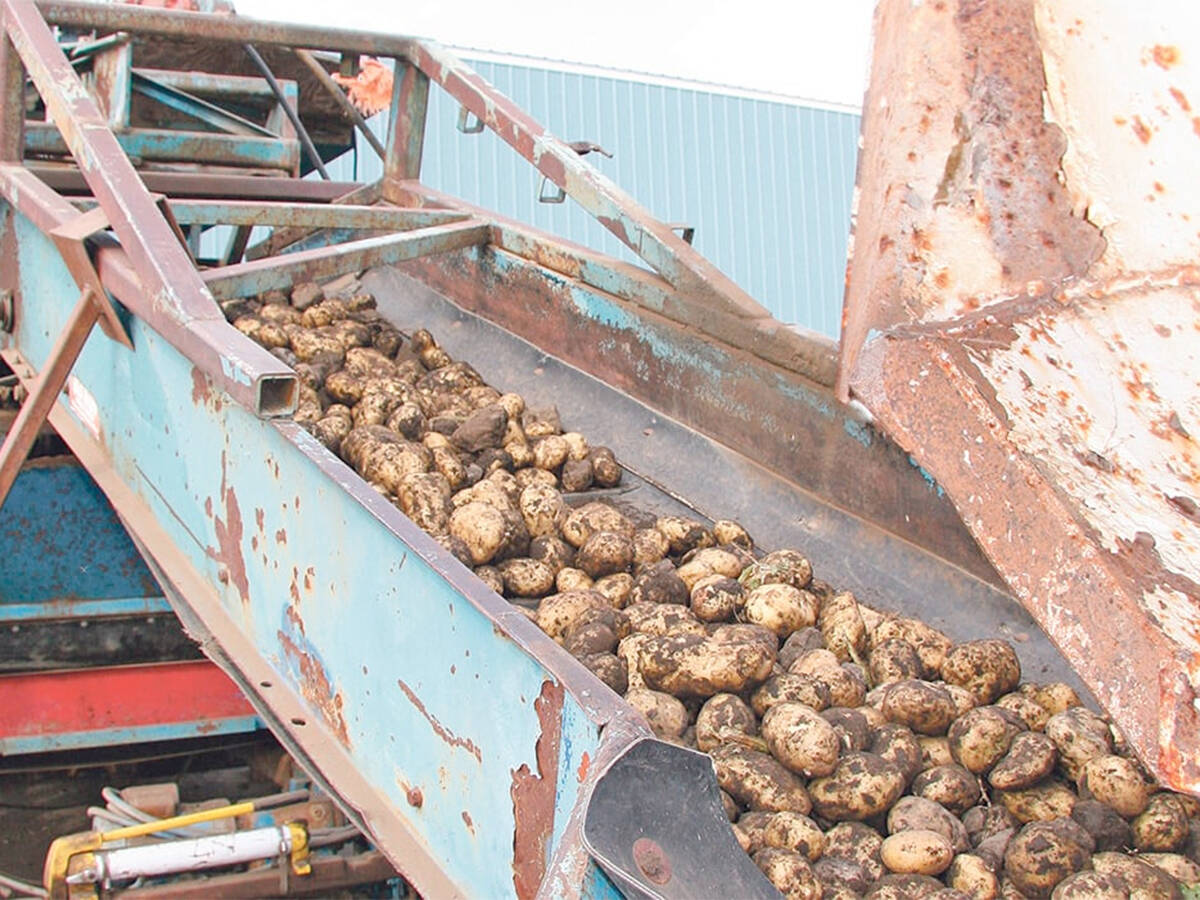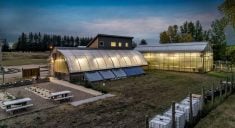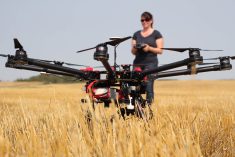The Prairie Innovation Centre for Sustainable Agriculture, touted by Assiniboine Community College (ACC) as its future hub for ag programs and applied research, is a half-million dollars closer to breaking ground.
On Dec. 16, the Brandon-based college announced a $500,000 joint donation for the project, divided between the Brandon Area Community Foundation and Gord and Diane Peters.
Why it matters: ACC says its vision of future ag programming will be tailor-made for the skilled labour increasingly needed in ag, food and agribusiness sectors.
In ag circles, the couple is likely best known for their work restoring the Dome Building on Brandon’s Keystone Centre grounds. The historic building was a longtime fixture of local ag fairs and opened its refurbished doors in 2018.
Diane Peters, however, is also an alum from ACC’s nursing program, college president Mark Frison noted during the Dec. 16 announcement, while Gord Peters holds one of the first honorary degrees from the institution.
“There’s going to be a lot of young kids who do very well out of this,” Gord Peters said of the centre.
In 2009, the Peters finalized a partnership with the Brandon Area and Community Foundation to cover long-term giving.

The centre
The new facility will help ACC almost triple its agricultural spaces, the college has said. ACC has set a goal of increasing ag programs from about 300 students to 800 students a year.
Announced in 2020, the college initially planned a $50-million price tag to complete the centre, with $10 million to be drawn from private fundraising. As of late 2021, that fundraising goal had been raised to $15 million, with a total project cost of $60 million to $65 million.
Frison says fundraising currently sits over the $10-million mark.
“It’s incredible,” said Tim Hore, dean of the school of agriculture and environment.
“The momentum’s building and the support, not only in the region, but province-wide, is really starting to bear fruit,” he also said.
Read Also

Potato growers beware new PVY strains
Newer strains of potato virus Y (PVY) are creating headaches for potato farms in Eastern Canada, and Manitoba farmers should pay attention
The project is still courting support from the federal and provincial governments.
Once complete, the facility will be both the new home for existing ag programs (including agribusiness, land and water management, sustainable food systems, geographic information system mapping (GIS), horticulture and communications engineering technology) as well as novel programs.
During an interview with the Co-operator in fall 2021, Hore singled out incoming programs like chemical technology, food technology and industrial automation and robotics — area Hore refers to as mechatronics.
“On the ag-related programs, there’s tremendous support and excitement for this project,” he said.
The college has previously said new course offerings will specifically address the skilled labour needs that industries in Manitoba will demand.
In particular, Hore has pointed to recent capital investments, new business additions and facilities — such as pea plant in Portage la Praire, Merit Functional Foods, as well as growth in companies ranging from Maple Leaf to Simplot to Shur-gro.
“The traditional approach to food and the food industry is really undergoing fundamental transformation,” Hore said. “When I say fundamental transformation, I talk about (how) we’re going to be producing food differently. We’re going to be using new technology and new techniques. We’re going to really take these new technologies to take food production to consumers, and that innovation is really going to ensure that we continue to produce those products efficiently and environmentally sustainably.”
The centre will also have a significant focus on applied research, and Hore says industry collaboration on that front is already happening.
Timeline
The recent donation does not change the timeline for the centre, Hore noted, adding that the project will move ahead “as soon as possible.”
Current plans involve both renovating a current building and the construction of new building extensions.
Fundraising efforts are also pressing ahead at all speed, Hore said, an effort the college hopes will not only fill the project’s coffers, but also offer evidence of community buy-in to government.
















